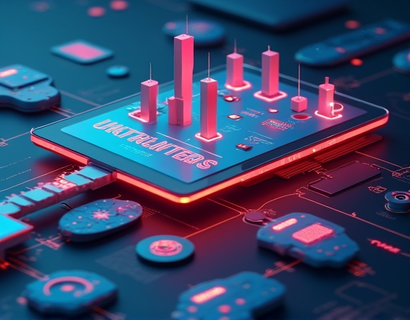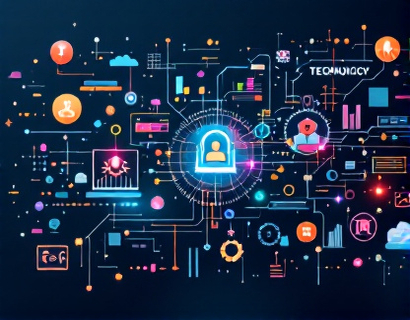Streamlining the Launch of Decentralized Autonomous Organizations with Advanced Tools and Resources
The advent of blockchain technology and decentralized systems has opened new avenues for business creation and management. Decentralized Autonomous Organizations (DAOs) represent a novel approach to organizing and operating businesses, leveraging the power of smart contracts and community governance. However, the process of launching a DAO can be complex and daunting, involving numerous technical, legal, and strategic considerations. This article explores how advanced tools and resources can streamline the creation and operation of DAOs, empowering entrepreneurs and organizations to innovate and thrive in the decentralized landscape.
Understanding DAOs and Autonomous Ventures
Before delving into the tools and resources available for launching DAOs, it's essential to understand what DAOs and autonomous ventures entail. A DAO is a digital organization that operates on a blockchain network, governed by a set of rules encoded in smart contracts. These smart contracts automate decision-making processes, ensuring transparency, immutability, and decentralization. Autonomous ventures, on the other hand, are businesses that leverage decentralized technologies to operate with minimal central control, allowing for greater flexibility and community involvement.
DAOs and autonomous ventures offer several advantages over traditional business models. They can reduce the need for intermediaries, lower operational costs, and foster a more inclusive and participatory governance structure. However, the technical complexity and regulatory uncertainties associated with blockchain technology pose significant challenges to their adoption. This is where advanced tools and resources play a crucial role in simplifying the process.
Challenges in Launching a DAO
Launching a DAO involves multiple steps, each with its own set of challenges. These include:
- Defining the organizational structure and governance model
- Developing and deploying smart contracts
- Creating a token economy to incentivize participation
- Ensuring compliance with legal and regulatory requirements
- Building and engaging a community of stakeholders
Each of these steps requires a deep understanding of blockchain technology, smart contract programming, and decentralized governance. For many entrepreneurs and organizations, the barrier to entry is high, and the learning curve is steep. This is where advanced tools and resources can significantly streamline the process.
Advanced Tools for DAO Launch
Several advanced tools and platforms are available to help streamline the launch of DAOs. These tools cover various aspects of the process, from governance design to smart contract development and community engagement. Here are some key tools and resources that can facilitate the creation and operation of a DAO:
Governance Design Tools
Effective governance is the cornerstone of a successful DAO. Governance design tools help organizations define their decision-making processes, role assignments, and voting mechanisms. These tools often include:
- Governance frameworks: Pre-built templates and guidelines for designing governance structures, ensuring that the DAO aligns with best practices and community needs.
- Voting platforms: User-friendly interfaces for conducting transparent and secure votes, allowing members to participate in decision-making.
- Role management systems: Tools to define and manage different roles within the DAO, ensuring that responsibilities are clearly assigned and executed.
Smart Contract Development Tools
Smart contracts are the backbone of DAOs, automating rules and processes. Advanced development tools can simplify the creation and deployment of these contracts. Key tools include:
- Blockchain development environments: Integrated development environments (IDEs) that provide a comprehensive set of tools for writing, testing, and deploying smart contracts.
- Template libraries: Pre-built smart contract templates for common DAO functionalities, such as token distribution, voting, and fund management.
- Code review and auditing tools: Platforms that assist in reviewing and auditing smart contract code to identify and mitigate security vulnerabilities.
Token Economy Tools
A well-designed token economy is crucial for incentivizing participation and ensuring the sustainability of a DAO. Token economy tools help organizations create and manage tokens effectively. These tools include:
- Token standards: Support for standard token protocols like ERC-20 and ERC-721, ensuring compatibility with major blockchain platforms.
- Tokenomics calculators: Tools to design and simulate token economies, helping organizations balance supply, distribution, and utility.
- Token sale platforms: Secure and compliant platforms for launching token sales, managing investor relationships, and ensuring regulatory adherence.
Community Engagement Tools
Building and maintaining a strong community is essential for the success of a DAO. Community engagement tools facilitate communication, collaboration, and participation among stakeholders. These tools include:
- Decentralized communication platforms: Blockchain-based chat and discussion forums that ensure transparency and security in community interactions.
- Event management tools: Platforms for organizing and managing virtual and physical events, conferences, and meetups to foster community engagement.
- Feedback and suggestion systems: Mechanisms for collecting and processing community feedback, ensuring that member voices are heard and acted upon.
Integrating Advanced Tools for Seamless Operation
To fully leverage the benefits of these advanced tools, organizations need to integrate them seamlessly into their DAO's ecosystem. This integration ensures that all components work together harmoniously, providing a smooth and efficient user experience. Here are some strategies for effective integration:
First, it's crucial to adopt a modular approach, selecting tools that can interoperate and communicate with each other. This interoperability ensures that data and processes flow smoothly between different systems. Second, organizations should focus on user experience, designing interfaces that are intuitive and accessible to both technical and non-technical users. Third, continuous monitoring and improvement are essential, involving regular updates and enhancements to the tools and processes based on community feedback and evolving needs.
By integrating these advanced tools, organizations can create a robust and scalable DAO that is well-equipped to handle the complexities of decentralized governance and operation. This integrated approach not only streamlines the launch process but also enhances the overall functionality and resilience of the DAO.
Case Studies and Success Stories
Several organizations have successfully launched and operated DAOs using advanced tools and resources. These case studies highlight the practical benefits and insights gained from their experiences.
One notable example is a decentralized finance (DeFi) platform that used governance design tools to create a community-driven decision-making process. By implementing a modular governance framework and a user-friendly voting platform, the platform was able to engage its token holders effectively, leading to higher participation rates and more democratic outcomes. The use of smart contract templates and code auditing tools ensured the security and reliability of their decentralized applications.
Another success story comes from a decentralized content creation platform that leveraged token economy tools to incentivize content producers and consumers. By designing a tokenomics model that rewards quality content and active participation, the platform fostered a vibrant and engaged community. The integration of decentralized communication platforms and event management tools further enhanced community interaction and collaboration.
These case studies demonstrate that with the right tools and resources, organizations can overcome the challenges of launching and operating a DAO, paving the way for innovative and community-driven business models.
Future Trends and Innovations
The landscape of DAOs and autonomous ventures is rapidly evolving, with new tools and innovations emerging regularly. Some key trends to watch include:
- Enhanced interoperability: Efforts to create standards and protocols that enable seamless interaction between different blockchain platforms and decentralized applications.
- AI and machine learning integration: Utilizing AI to optimize governance processes, predict community behavior, and enhance decision-making.
- Regulatory compliance tools: Development of tools and services that help organizations navigate the complex regulatory environment of blockchain and decentralized finance.
- Sustainable token economies: Focus on creating token economies that promote environmental sustainability and social responsibility.
These trends indicate a future where DAOs and autonomous ventures become even more sophisticated and accessible, driving further innovation and adoption across various industries.
Conclusion
Launching a DAO can be a complex endeavor, but with the right advanced tools and resources, organizations can streamline the process and unlock the full potential of decentralized business models. From governance design to smart contract development and community engagement, a comprehensive toolkit can significantly reduce the barriers to entry and enhance the overall functionality of a DAO. As the ecosystem continues to evolve, the adoption of DAOs is poised to grow, offering new opportunities for innovation and collaboration in the decentralized landscape.










































